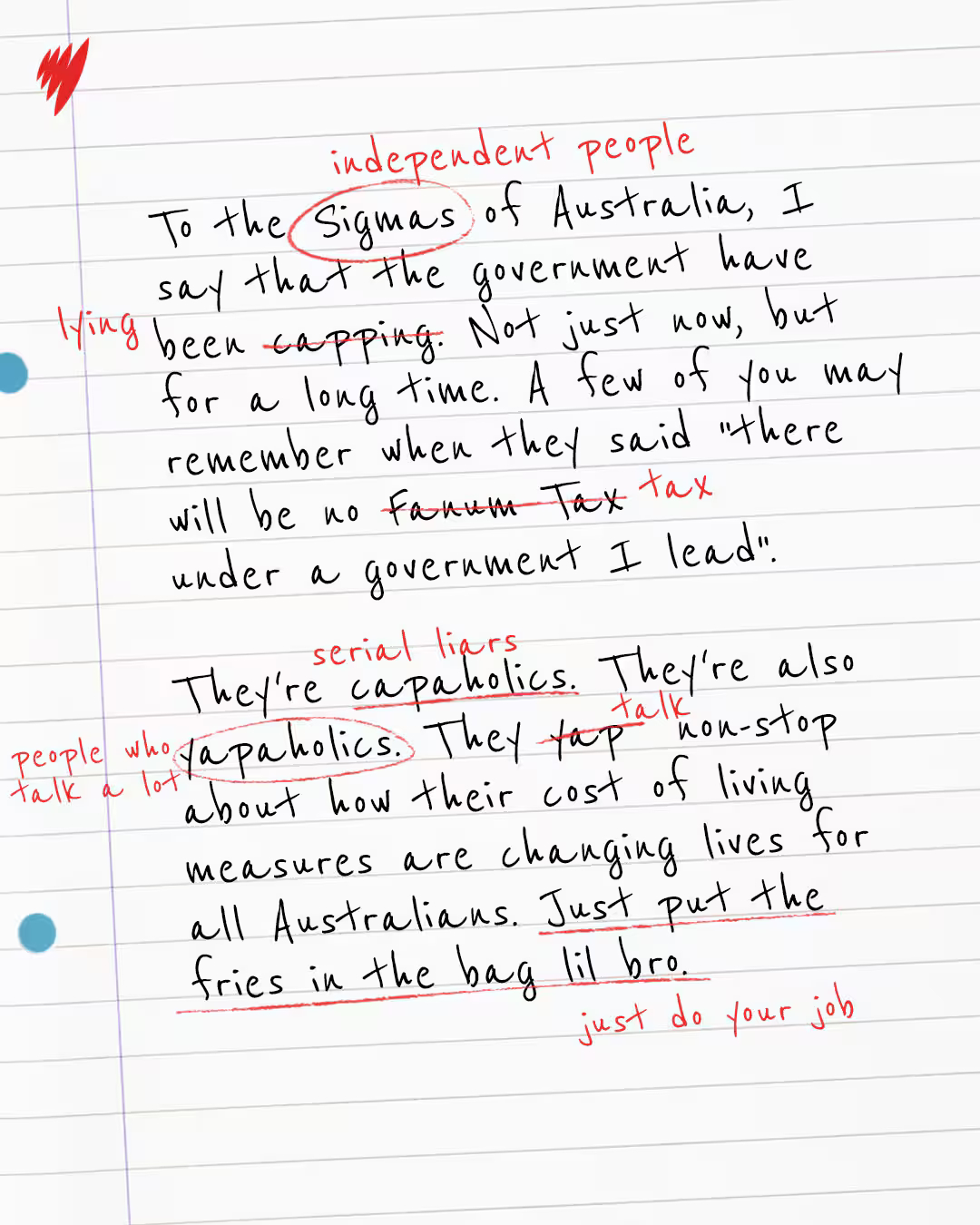3
9
8
32
9
40
10
12
14
14
15
16
20
7
21
27
23
18
24
23
25
33
view more: next ›
Australian Politics
1264 readers
21 users here now
A place to discuss Australia Politics.
Rules
This community is run under the rules of aussie.zone.
Recommended and Related Communities
Be sure to check out and subscribe to our related communities on aussie.zone:
- Australia (general)
- Australian News
- World News (from an Australian Perspective)
- Aussie Environment
- Ask an Australian
- AusFinance
- Pictures
- AusLegal
- Aussie Frugal Living
- Cars (Australia)
- Coffee
- Chat
- Aussie Zone Meta
- bapcsalesaustralia
- Food Australia
Plus other communities for sport and major cities.
https://aussie.zone/communities
founded 1 year ago
MODERATORS
